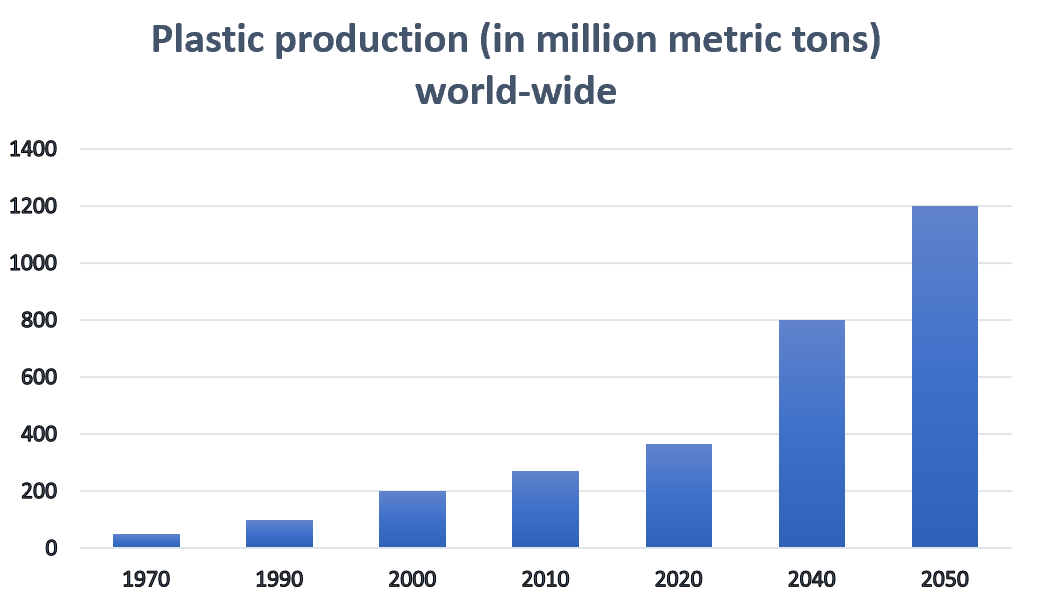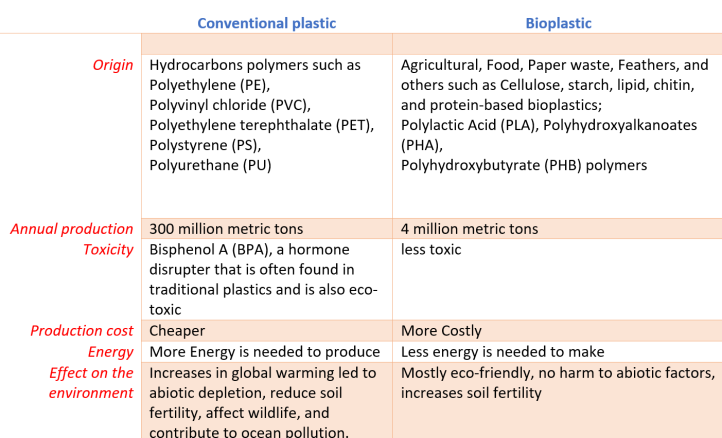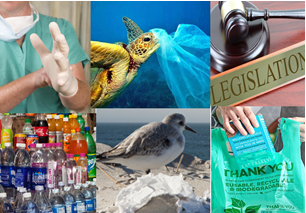-
Paper Information
- Paper Submission
-
Journal Information
- About This Journal
- Editorial Board
- Current Issue
- Archive
- Author Guidelines
- Contact Us
American Journal of Environmental Engineering
p-ISSN: 2166-4633 e-ISSN: 2166-465X
2022; 12(1): 9-11
doi:10.5923/j.ajee.20221201.02
Received: Nov. 21, 2022; Accepted: Dec. 2, 2022; Published: Dec. 14, 2022

Opinion: The Effects of Plastic Pollution on the Environment Post-Coronavirus Pandemic from a Freshman Chemistry Student’s Perspective
Alexandra Combs, Shadi Abu-Baker
Department of Chemistry and Biochemistry, Ohio University, Zanesville, Ohio, USA
Correspondence to: Shadi Abu-Baker, Department of Chemistry and Biochemistry, Ohio University, Zanesville, Ohio, USA.
| Email: |  |
Copyright © 2022 The Author(s). Published by Scientific & Academic Publishing.
This work is licensed under the Creative Commons Attribution International License (CC BY).
http://creativecommons.org/licenses/by/4.0/

In one of my applied chemistry classes, the students were given the opportunity to write about an environmental issue from their perspective. One of the topics the students picked was plastic pollution. In recent years, there has been a 200-fold increase in plastic production compared to 1950. Plastic is popular because it is cheap, lightweight, nonreactive, and waterproof. However, it is a real problem for the environment. For example, ocean plastic pollution is very harmful to wildlife and human. Since the coronavirus pandemic broke out in the year 2020, plastic pollution has become even worse due to the excessive use of masks, gloves, and gowns in hospitals and by regular citizens. It is also extensively used in water bottles and soft drinks as people were discouraged from using public water fountains. With plastic pollution set to quadruple by the year 2050 (plastic pollution coalition), the world is in extreme danger. We suggest that Legislative action from governments around the globe could overturn this serious environmental global problem. Additionally, the use of more biodegradable alternatives as well as raising society’s awareness of the problem should be encouraged.
Keywords: Plastic pollution, Educating society, Students’ awareness of environmental issues, Masks and gloves, Water bottles, Legislative Action
Cite this paper: Alexandra Combs, Shadi Abu-Baker, Opinion: The Effects of Plastic Pollution on the Environment Post-Coronavirus Pandemic from a Freshman Chemistry Student’s Perspective, American Journal of Environmental Engineering, Vol. 12 No. 1, 2022, pp. 9-11. doi: 10.5923/j.ajee.20221201.02.
1. Introduction
- Since the beginning of time, humans have revolutionized the world in ways that were thought as impossible. Inventors and innovators have made what the world is today. However, when looking at everything around us, almost everything is a pollutant. For instance, plastic water bottles, the burning of fuels in the air, and pesticides put on plants, are some of the many ways pollution affects the earth. While cars, packaging, and preservatives have improved the world's access to an easier and accommodating environment, humans seem to dismiss the harmful effects of the effortless way of living. One of the biggest issues on our planet is the massive tons of waste, specifically plastic. Plastic pollution is detrimental to the environment, wildlife, and climate; therefore, it must end. People do not realize just how much the plastic bottles they are drinking out of can impact their health as well. According to the Plastic Pollution Coalition, plastic has been found in human blood and placental tissue. Not only does it affect human health, but it also affects the daily living of humans. If our world continues to have vast amounts of plastic waste, it will soon fill the yards and walkways that we access every day. As stated by Richie, Hannah (2018). “In 1950 the world produced only 2 million tonnes per year. Since then, annual production has increased nearly 200-fold, reaching 381 million tonnes in 2015. For context, this is roughly equivalent to the mass of two-thirds of the world population.” It is shocking how much plastic we continue to use, even though we see the hazardous effects it has. It is time to take action in communities and at the legislative level, in order to prevent the earth from continually declining.
2. Finding Solutions
- In almost every place you look, you can see plastic. Plastic is used on almost everything, whether it be a water bottle, a package of chips, or toys. In today's society, plastic is mostly used for convenience. It is much easier to have snacks or products on the go rather than buying things in bulk and having to package them yourself. The use of plastic promotes laziness and a toxic unclean society for the satisfaction of wants, not needs. According to the center of biological diversity, plastic makes up approximately 40 percent of the ocean's surfaces. It is absurd that our planet is filled with plastic that animals choke on every day. Not only is plastic harmful for animals, but it is harmful to humans as well. As provided by the Plastic Pollution Coalition, approximately every 30 seconds, a human dies from diseases caused by plastic waste. Convenience should never surpass the health of humans and animals. Ultimately, in order to stop the plastic pollution pandemic for good, government control must act. Through education and laws, pollution can be overturned. Unfortunately, we live in a society where change is not possible unless fear is instilled. If laws against littering were taken more seriously, plastic pollution would be feared by humans. Most producers of our products use plastic because “it is a unique material: often lightweight, resilient, usually nonreactive, waterproof and cheap. For most of us, it has an almost constant place in our lives. Even those who try to minimize or cut plastic from their lives are likely to come into contact with it every day,” Richie, Hannah (2018). Because we live in an economy where cost-effectiveness trumps health hazards, it is easy for these companies to get away with the harmful products they make. Creating laws where manufacturers can only use a small amount of plastic in their products would help contain the mass production of plastic products. If we start with manufacturers, which are where these products come from, and then bring laws against society's littering and pollution, plastic pollution could be resolved. However, there still continues to be zero legislative action from our government to overturn this pandemic. With plastic pollution set to quadruple by the year 2050 (plastic pollution coalition), the world is in extreme danger. Please see figure 1 for the 2040 and 2050 expected annual plastic production [2,4].
 | Figure 1. Annual plastic production is expected to quadruple by the year 2050, source references [2,4] |
 | Figure 2. Conventional vs Bioplastic. Bioplastic is more eco-friendly and requires less energy to make. However, it is more expensive to make [6] |
3. Conclusions
- By educating society on the use of clean products such as recycled materials, wood, and paper, plastic pollution could be drastically reduced or even eliminated. It is extremely important to hold ourselves and others accountable for the choices in products we make, as well as how we dispose of them. Educating those around us will help promote a safer and cleaner society. If the government were to ban or control the use of plastic in products, manufacturers are then held responsible for what they produce. Although some may brush off the realism of what plastic is doing to the world, because it is just a new way of living, it is vital to hold those people responsible for their carelessness of our harmed environment. Even though there are many ways to make the world a better place, banishing the use of plastic is a great start in making a new cleaner world.
 Abstract
Abstract Reference
Reference Full-Text PDF
Full-Text PDF Full-text HTML
Full-text HTML